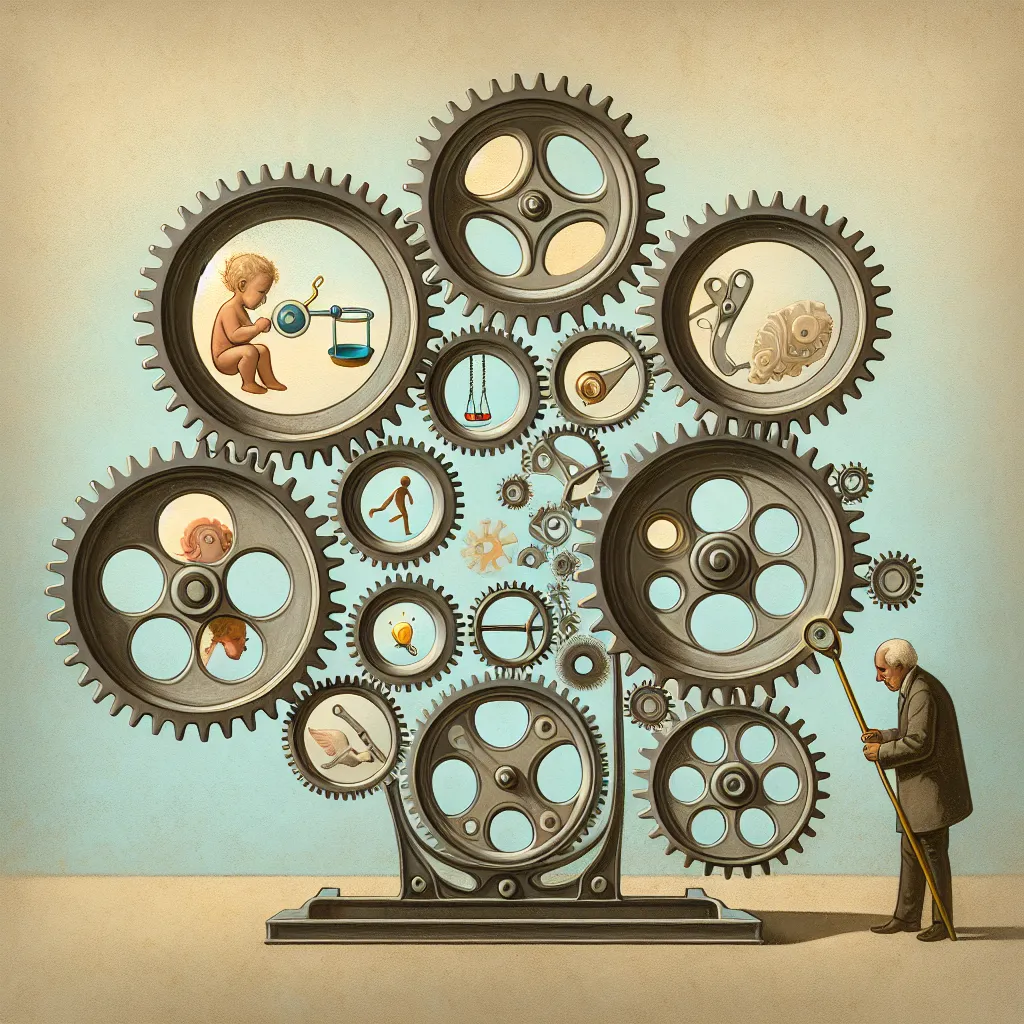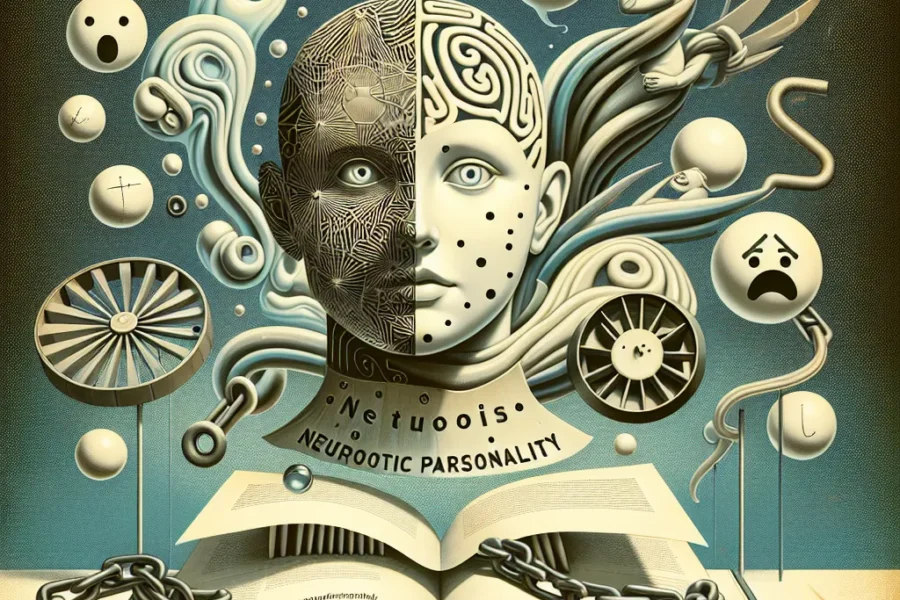Erik Erikson and the Stages of Psychosocial Development
Erik Erikson, a prominent figure in the field of psychology, is renowned for his influential theory on the stages of psychosocial development. Born in 1902, Erikson’s groundbreaking work continued the conversation on human development, building upon the foundational theories of development by Sigmund Freud. His unique contribution was the introduction of the psychosocial aspect, which considers the impact of society, culture, and community in shaping an individual’s growth and personality.
Erikson’s theory posits that an individual goes through eight distinct development stages from infancy to late adulthood. Each stage presents a crisis or challenge that an individual needs to resolve to progress successfully to the next stage. If these crises are navigated successfully, a person develops essential virtues which contribute to overall well-being and personality. Failure to effectively manage these challenges can lead to difficulties in development and potential issues later in life.
Let’s explore these stages in detail:
1. Trust vs. Mistrust (0-18 months): This initial stage takes place during infancy. Babies depend on their primary caregivers, usually parents, to provide stability and consistency of care. The outcome is crucial as it shapes a child’s sense of trust in the world. When caregivers are responsive and attentive, the infant develops a sense of trust. If they are neglectful or inconsistent, the child may grow up with mistrust about the world around them.
2. Autonomy vs. Shame and Doubt (18 months to 3 years): As toddlers begin to assert their independence, they want to do things on their own. Supportive parents allow children to explore and be independent while keeping them safe. Success in this stage leads to autonomy, whereas overly critical or controlling caregivers can cause children to doubt their abilities and feel ashamed of their actions and decisions.
3. Initiative vs. Guilt (3-5 years): At this stage, children begin to initiate activities, make up games, and undertake tasks. When allowed to do so, they develop a sense of initiative and the confidence to lead others and make decisions. If, however, caregivers discourage this sense of purpose, children may feel guilty about their needs and desires, potentially stunting their initiative.
4. Industry vs. Inferiority (5-12 years): During the school years, children learn to make things, use tools, and acquire skills for the world. They gain a sense of industry and learn the pleasure of completing tasks and contributing. If this impulse is restrained by adults, or if the child experiences failure or indifference from peers, they may develop a sense of inferiority about their capabilities.
5. Identity vs. Role Confusion (12-18 years): Adolescence is a critical period where individuals explore different roles, beliefs, and ideas. It is the search for a personal identity that becomes paramount. Successful resolution of this stage results in a strong sense of self and a feeling of independence. Unsuccessful navigation through this period may lead to role confusion and a weak sense of self.
6. Intimacy vs. Isolation (18-40 years): This stage focuses on young adults and their ability to form intimate, loving relationships with others. Erikson believed that a strong sense of identity is necessary for intimate relationships. Those who establish successful relationships develop a sense of intimacy and commitment. Those who struggle face isolation and loneliness.
7. Generativity vs. Stagnation (40-65 years): This stage refers to middle adulthood. Generativity involves creating or nurturing things that will outlast oneself – for instance, by raising children or contributing to positive changes that benefit others. Success leads to feelings of productivity and accomplishment. Failing to achieve these objectives can result in stagnation and a sense of unfulfillment.
8. Ego Integrity vs. Despair (65 years to death): In the final stage, individuals reflect on their life and its meaning. If they see themselves as leading a successful life, they achieve a sense of integrity and satisfaction. If not, they may experience regret, dissatisfaction, and despair about their life and their impending death.
Erikson’s theory is more than just a framework for psychological development; it offers a lens through which to understand the entire human lifespan. It provides crucial insights into the transitional moments that shape our sense of self and our relationships with others. Teachers, parents, caregivers, and counselors can use Erikson’s stages as a guideline to support individuals at various stages of their life in order to cultivate positive growth and well-being.
Moreover, understanding Erikson’s stages of development can be beneficial for individuals seeking to make sense of their own lives — the developmentally appropriate crises, the anticipated transitions, and the virtues that come from resolving these challenges. It offers a sort of road map for psychosocial development that is still highly relevant in the diverse and complex modern world.
The enduring legacy of Erikson’s stages of psychosocial development lies in the recognition that one’s social environment and culture play a vital role in shaping personality and behavior. His emphasis on the psychosocial aspects reflects a holistic understanding that development is not purely biological or purely psychological, but rather a combination of the two, heavily influenced by social experiences.
In the realm of psychology and human development, Erikson’s work emphasized the growth and change that continue throughout life, challenging the notion that personality is fixed after early childhood. This opened up new possibilities for therapeutic approaches and educational practices that recognize the potential for growth at every stage of life.
In conclusion, Erik Erikson’s theory on the stages of psychosocial development provides a comprehensive framework for understanding human growth and the formation of identity. Each stage represents a critical point in the development of a person’s psychological and social self. By addressing and resolving the core conflicts at each stage, individuals can develop key strengths and virtues that enable them to lead fulfilling, meaningful lives. Erikson’s legacy lasts to this day, changing paradigms and touching lives through the profound insight that no matter who we are or where we are in our life journey, we are all on a path of psychosocial development.



Leave a Comment